10 Rainy Season Fruits in India
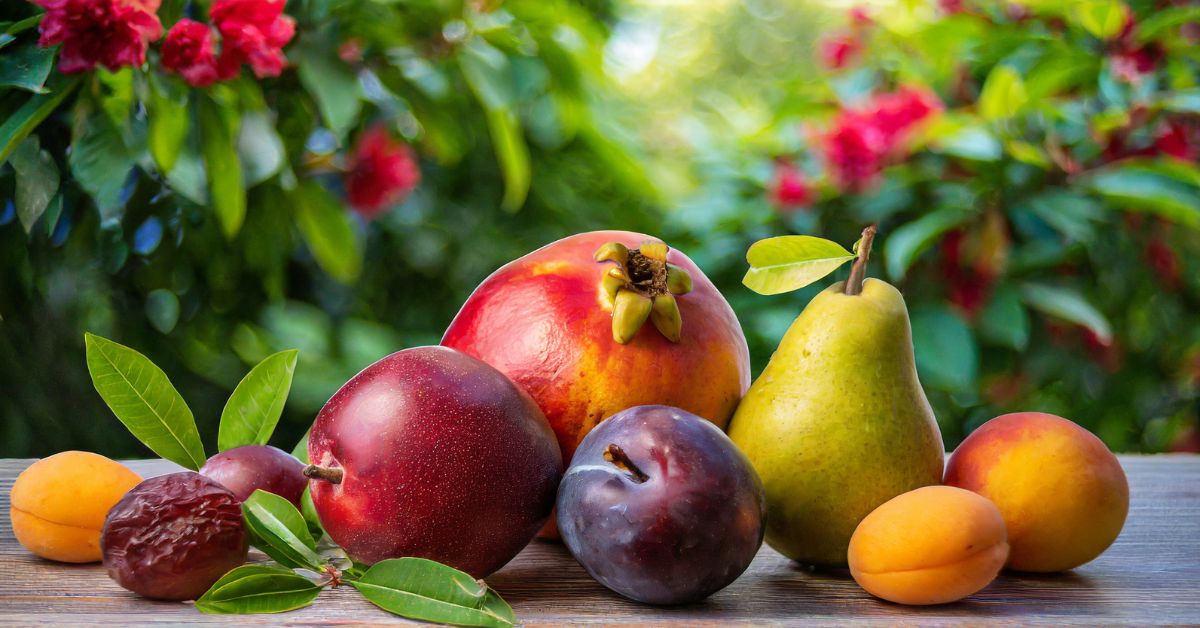
Eating fresh fruits and vegetables is key to leading a healthy life with ample nutrition being supplied to the body and no deficiencies. We shall all embrace the rainbow in our fruit plate as it has diverse benefits such as boosting our immunity, better metabolism, and good overall health while keeping sickness due to various ailments at bay. As monsoon showers approach, it makes us wonder which rainy season fruits in India to consume. We will dig into that in this article.
As the seasons change so do the foods and fruits we consume with it. Nature has its way of ensuring that we cope with the changing seasons with ease and provide us with nutritious seasonal fruits and vegetables.
Why Should You Eat Seasonal Fruits?
The seasonal produce that you get contains fruits and vegetables that are unique to that particular time of the year and it comes up to be the freshest, tastiest, and ripest. It contains better nutritional value as the longer the produce sits on the shelf in warehouses, the more nutrients it loses. Also, seasonal fruits complement the weather conditions by offering us with nutrients that are needed to fare through that season.
Also Read: 20 Best Summer Fruits for Your Refreshing Diet
As monsoon winds make their way to us and rains start to shower, we shall embrace the rainy season fruits which will keep us healthy and going with our best energy. Here is a list of 10 Rainy season fruits that you should consume to stay energetic and in prime health.
10 Rainy Season Fruits To Eat In India
1. Litchi
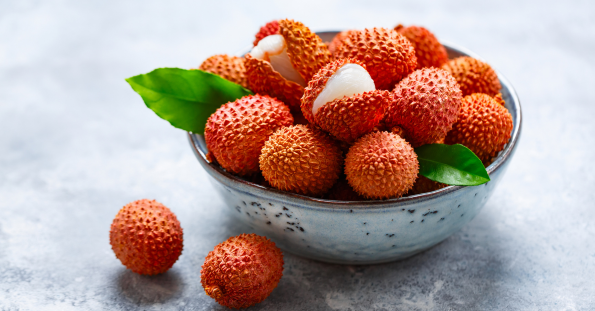
A tropical fruit with a rough, pinkish-red outer skin and juicy, translucent flesh, Lichi has a sweet and floral taste and is commonly enjoyed fresh or in desserts. Being a rich source of iron, copper, manganese, phosphorus, and magnesium, Lichi is one of the monsoon fruits that shield the body against oxidative stress.
Also Read: 25 Exotic Fruits You Might Not Know About
2. Jamun
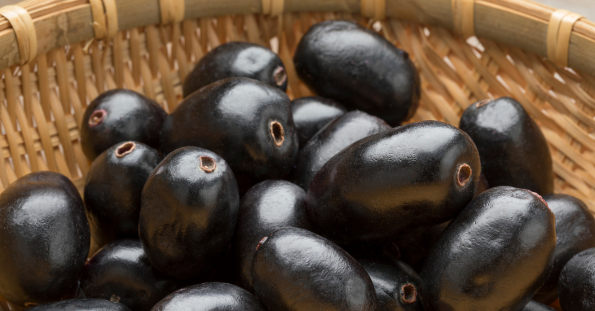
Jamun, also known as the Indian blackberry, is a black or purple fruit with a sweet flavor. It is rich in antioxidants and thus, plays a significant role in reducing oxidative stress and inflammation and supporting a healthy immune system while ensuring an improved digestive system.
3. Plums

Plums are small, round fruits with smooth skin and a sweet-tart taste. They are available in various colors, including red, yellow, and purple. Relished as a refreshing snack, plums are fiber-packed and help regulate blood sugar levels, ensure bone health, and more.
Also Read: 11 Spiny Fruit Names
4. Cherry

Cherries are small, red fruits with a sweet and slightly tart taste. They are often eaten fresh, added to desserts, or used in jams and sauces. They fight inflammation, ensure good sleep, soothe sore muscles, help deal with joint pain, improve blood glucose levels, and more.
5. Peach
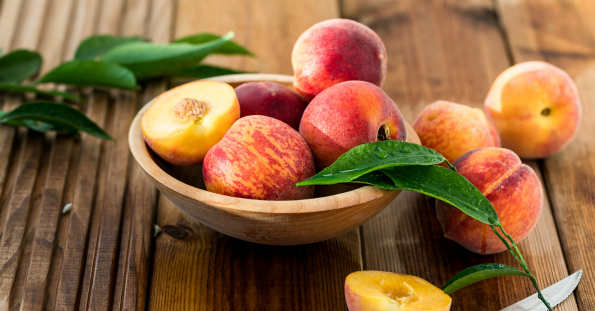
Peaches are fuzzy-skinned fruits with juicy and sweet flesh. Available in various varieties, they have a flavor that is a mix of sweet and tart. Peaches are packed with nutrients and antioxidants. They aid digestion, improve heart health, and are effective against allergies. These are widely available and thus, easy to add to your monsoon diet.
Also Read: Which is the Best Time To Eat Fruits?
6. Pear
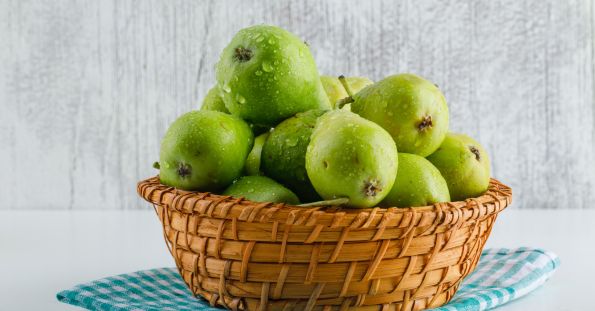
Pears are fruits with a smooth skin and a sweet, juicy flesh. They come in different varieties, each with its own flavor profile, ranging from sweet to slightly tangy. Containing a lot of vitamins and many essential nutrients, they help us fight against various diseases.
7. Melon
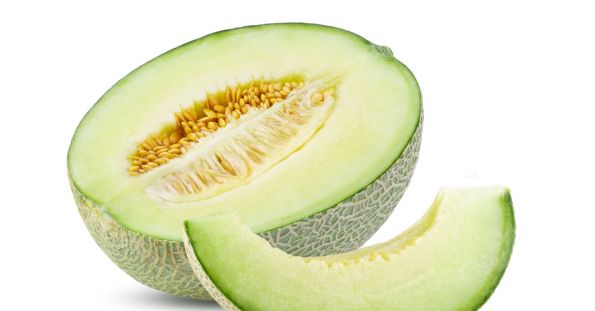
Melon is a refreshing fruit with sweet, hydrating flesh. They add good water content to the fruit salad plate. Rich in electrolytes, Vitamin A and C, melons help regulate blood pressure and keep the body healthy.
Also Read: 19 Red Fruit Names With Pictures
8. Pomegranate
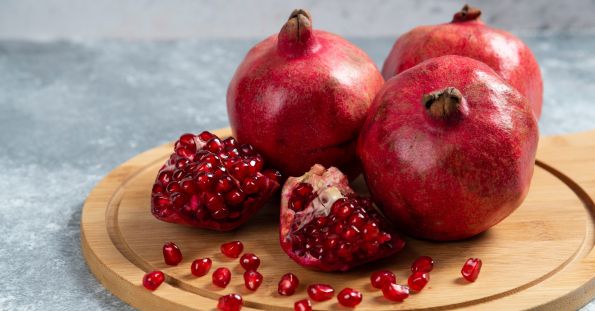
Pomegranate is a fruit with jewel-like seeds and a sweet-tart taste. It is a monsoon fruit that’s rich in antioxidants. It contains anti-inflammatory properties, protects the body against infections like colds, and flu, and is commonly consumed fresh or as juice.
9. Custard Apple
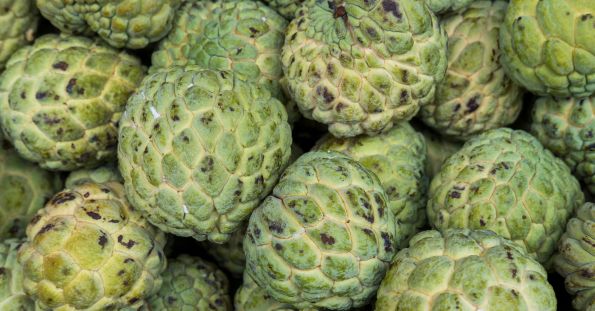
Custard apple has a green, scaly exterior and sweet, creamy flesh. It is a tropical fruit enjoyed for its unique taste and texture. The fruit provides ample energy, helps treat skin infections, enhances brain activity, improves heart function, and more.
Also Read: 16 Fruits With Many Seeds
10. Mango
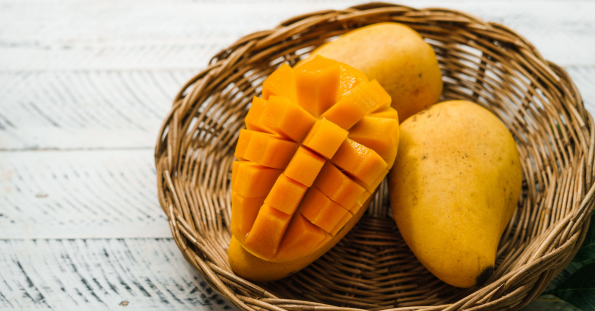
Beat the humidity by consuming mango, the king of fruits. Rich in vitamins and minerals, mangoes can give a boost to your immune system, keep your energy levels high in monsoon weather, and offer a cooling effect to the body.
Also Read: 33 Green Fruits To Include In Your Diet
Conclusion
The above-mentioned fruits offer a variety of flavors and nutritional benefits, making them popular choices for both snacking and culinary use. Consume these rainy season fruits and keep yourself healthy with high energy levels and in the best health. If you want an assortment of monsoon fruits to boost your health, you can order a fruit basket hamper containing nutritious fruits that you would delight in from Fruitsmith.
Frequently Asked Questions
1. What fruits come in the rainy season in India?
Some of the fruits of the rainy season that you can consume fresh when monsoon arrives are custard apples, Litchi, blackberries, plums, pears, pomegranates, melons, and more.
2. Is litchi a monsoon fruit?
Yes, Lichi is a monsoon fruit that has low calories and high fibre content. Enriched in Vitamin C, it boosts the immune system and ensures good skin health during damp monsoon weather.












